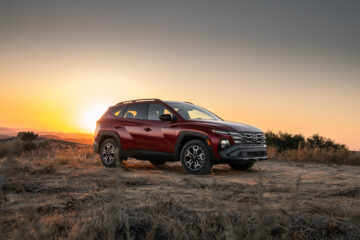Despite a slowdown in sales, electric cars are becoming more and more prevalent on American roads.
Beyond the likes of homegrown EV startups like Elon Musk’s Tesla (TSLA) and rivals Rivian (RIVN) and Lucid (LCID) , many large automakers like General Motors (GM) and Ford (F) have also gotten into the mix.
Related: Forget Tesla, these EVs at the New York Auto Show will make you forget about Elon Musk
NASCAR Hall of Famer and team owner Rick Hendrick waits on the grid prior to the NASCAR Cup Series Daytona 500
James Gilbert/Getty Images
However, more EV choices on the market does not mean more EVs are being sold. In a recent interview with Robb Report, NASCAR and auto dealer mogul Rick Hendrick shared a his ‘customer-centric’ point of view in regard to automakers and EV policy.
“The customer is going to dictate what you build. I’ve been in the automobile business for almost 50 years, and you can’t force customers to buy what they don’t want,” Hendrick told Robb Report. “We were too aggressive with the EV market … I think the EV market will be there one day, but we’re not ready for it.”
As the owner of more than a hundred dealerships under the Hendrick automotive group, the dealer mogul has experience operating the outposts of a wide variety of brands. From luxury mainstays like Lexus, Porsche, Jaguar, BMW, Audi and Mercedes, to more consumer-focused brands like Honda, Toyota, Subaru, Kia and Chevrolet Hendrick’s dealer group touches 11 states from coast to coast.
Mercedes-Benz EQ electric battery electric vehicles.
Horacio Villalobos/Getty Images
With that degree of experience, Hendrick offered some firsthand knowledge about how EVs are difficult to sell from a customer-facing perspective. According to him, customers are more keen on a different type of electrified vehicle.
“I’ve got dealerships in the [Northern California] Bay Area, and selling a Lexus EV versus a Lexus hybrid — we’ve got a waiting list for the hybrids and have to put big discounts on the EVs,” Hendrick said. “Mercedes came out with all these [EV] models — I’m a Mercedes dealer and we had a horrible year. And in some cases, with Audi and others, you had a $25,000 rebate to get a customer to buy a car and they still wouldn’t buy it. I mean, you just can’t force people to buy what they don’t want.”
Hendrick’s comments come in the wake of updated EPA rulings on tailpipe emissions and EV sales targets, which have been loosened from its initial targets. By 2032, automakers must sell at least 56% EVs within the total number of all new auto sales — a figure reduced from two-thirds of total new auto sales.
U.S. President Joe Biden in the Roosevelt Room of the White House,
Despite President Biden calling these updated regulations “historic progress,” EV Voice of the Consumer – the advocacy group representing nearly 5,000 auto dealerships across the United States told TheStreet on March 21 that the administration’s expectations are still unrealistic.
“The regulations still would require an increase in sales of electric vehicles that is far beyond the consumer interest we are experiencing at our dealerships. Despite generous government, manufacturer and dealer incentives, our customers continue to bypass EVs over concerns about affordability, charging infrastructure, performance in cold weather, and resale value,” the group said.
“Worse still, the regulations spike in 2031-32 and revert to the unrealistic mandate that essentially requires that two-thirds of all vehicles sold be electric.”
According to an Excel sheet that listed all of the dealerships that have signed onto EV Voice of the Consumer’s letters to President Biden found on its website, Hendrick’s dealers have signed onto the widely publicized letters urging the administration to reconsider its decisions.
More Business of EVs:
A full list of EVs and hybrids that qualify for federal tax creditsHere’s why EV experts are flaming Joe Biden’s car policyThe EV industry is facing an unusual new problem
Data from J.D. Power suggests that Americans as a whole are not welcoming EVs into their homes. According to a recent report, just 8.6% of new car customers bought electric cars in 2023.
However, there are some factors that play into the hesitation. A November 2023 report by J.D. Power showed that people who bought normal gas-powered cars reported that they were much more satisfied with the buying experience than those who bought an electric vehicle, as many salespeople on showroom floors tended to lack knowledge about EVs, and buyers were left in the dark about seemingly normal parts of EV ownership like charging.
“Buyers of ICE vehicles don’t need to be taught how to put fuel in the gas tank,” J.D. Power automotive retail vice president Chris Sutton said. “But salespeople need to show EV buyers how to charge their vehicles at home and what’s involved in using a public charging station.”
Related: Veteran fund manager picks favorite stocks for 2024


